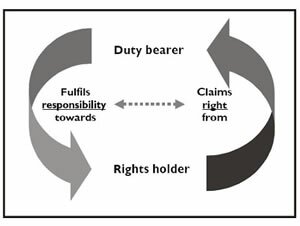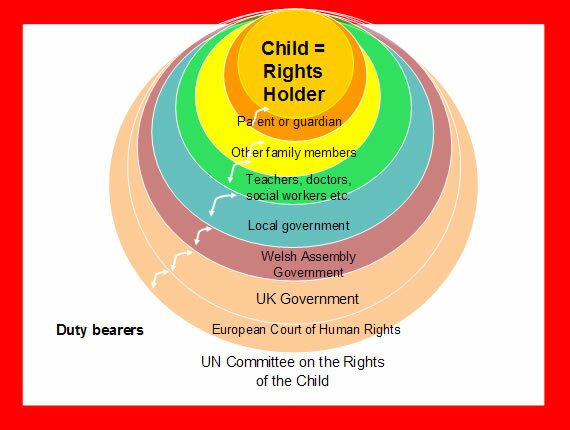What are human rights?
This page gives an introduction to the concept of ‘rights’ and the kinds of rights that all humans – adults and children are entitled to. The concept of rights has been present in many societies across the world throughout history.
In Europe however it was only really during the 17th and 18th centuries that ideas of ‘natural rights’ began to emerge, i.e. that rights belonged to a person because he or she was a human being rather than a citizen of a particular country. These rights are intended to guarantee the basic human need to survive and develop with dignity and equality, to reach our fullest potential and to flourish and participate fully in society.
Rights give all people moral claims on the behaviour of individuals and on social arrangements and primarily regulate the relationship between the state and individuals.
How are rights fulfilled?
If all people are the holders of rights and have a moral and legal entitlement that their rights are secured then it is essential that those responsible for delivering on these rights are identified, and made accountable and responsive.
Duty bearers and rights holders

Duty bearers: The State or government is the principal duty bearer responsible and accountable to fulfilling the rights of a rights holder. The state works at a number of different levels of society to uphold the rights of rights holders and additionally others have clear moral and legal responsibilities towards children (e.g. teachers, social workers and parents themselves).
The form of a right
- The Rights Holder (Being a Rights Holder means having a right to something - e.g. right holder = child )
- The Object (The object of the Right is what you are entitled to - e.g. object = education)
- The Duty Bearer (are the organisations, institutions that have a responsibility to give you the object of the Right - An obligation of the duty bearer is to give you what you are entitled to - e.g. duty bearer = local education authority)

Duty bearer’s relationship with a rights holder: Central to the idea of human rights is the relationship of a rights holder and a duty bearer. States (and other duty bearers) are responsible to ensure the rights of all people are equally protected and fulfilled. This does not mean that the State is responsible to provide everything. It does mean, however that the state has an obligation to create the conditions to enable other duty bearers, such as parents, private sector, local organisations, donors and international institutions, to fulfil their responsibilities.
Participation is a fundamental human right. Every child or adult as a rights holder is entitled to demand his or her rights from duty bearers. The civil rights to information, expression and association are rights which enable people to organise effectively and campaign for the realisation of other rights.
So having rights means:
- Duty bearers are 'accountable' to you, the rights holder.
- To obtain your right you must know you are entitled to it, 'empowerment'.
- Knowing you have the right means that you can 'participate' in claiming it.
Types of human rights
The range of human rights reflects our basic needs across different areas of our lives. Broadly they are described as falling into two types of rights:
- Civil and political rights – for example, the right to liberty and to freedom of expression, the right to a fair trial, to vote, privacy, to practise religion
- Economic, social and cultural rights – for example the rights to health and education, housing, food and water, adequate standard of living
Human rights values
Human rights are underpinned by key values like equality and dignity as well as the Principles of Human Rights
These values are expressed through the human rights declarations; Conventions and laws which are the starting point for making these values real in people's lives.